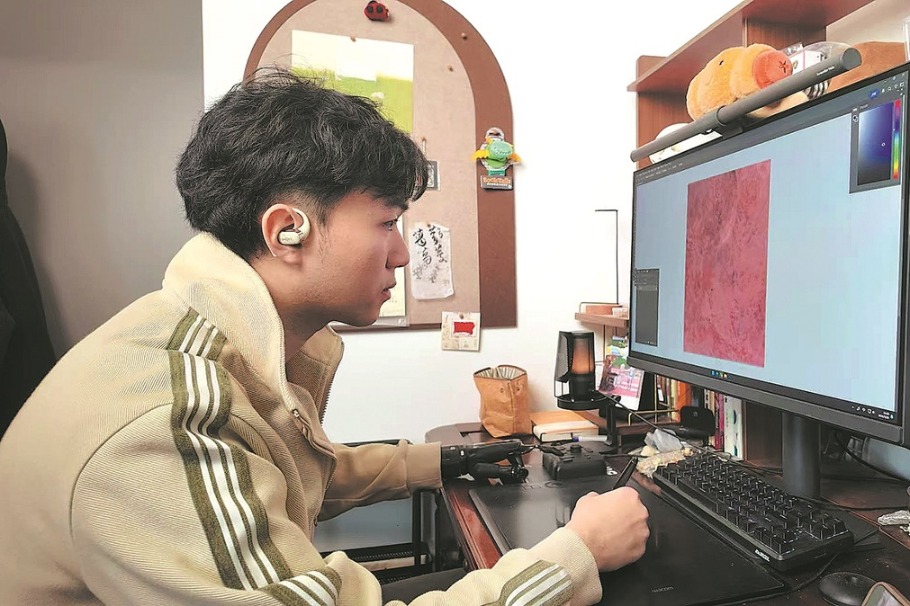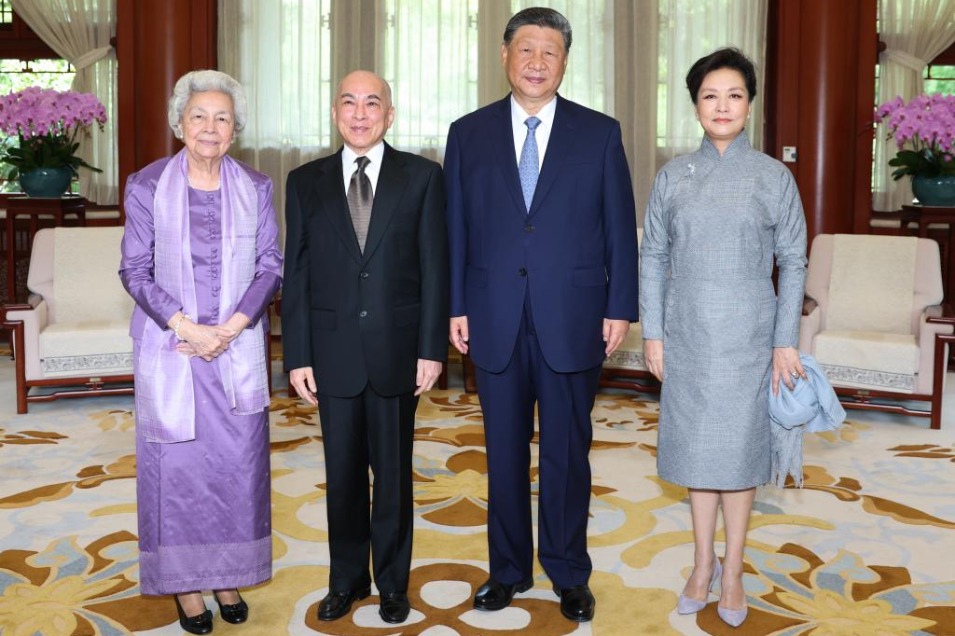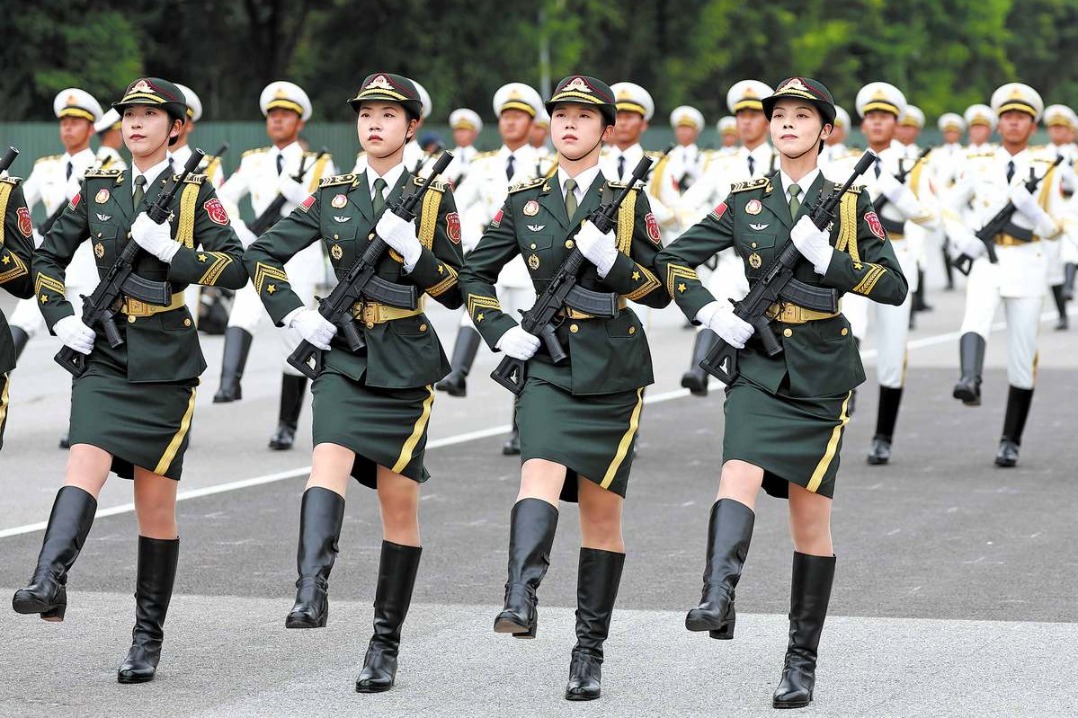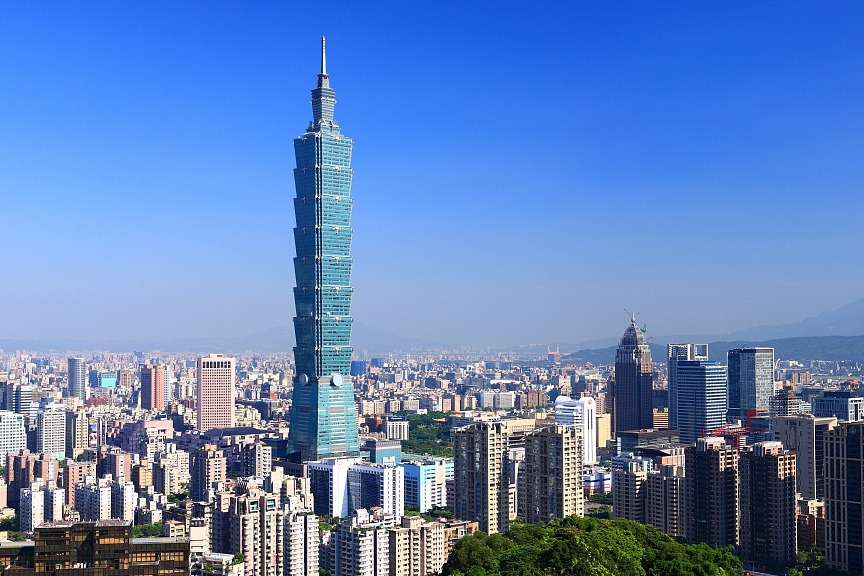Welcome would be welcomed if sincere: China Daily editorial

It is good to hear US President Donald Trump say that he welcomes Chinese students to study in the United States.
"I hear so many stories that we're not going to allow their students," Trump said at the White House on Monday. "We're going to allow their students to come in. It's very important, 600,000 students. It's very important. But we're going to get along with China."
If the US administration can match its words with deeds, the number of Chinese students studying in the US is expected to start rising after a steep drop in the number amid the strained bilateral ties in recent years. The peak number of Chinese students enrolled in US colleges was about 372,000 in the 2019-20 academic year. Currently, the number is about 270,000, according to US media.
But some recent moves related to Chinese students in the US have been contradictory to the US leader's words. In May, US Secretary of State Marco Rubio announced plans to "aggressively revoke" visas for Chinese nationals, particularly those alleged to have links with the ruling party of China or engaged in sensitive research fields.
Over the past few years, multiple incidents have occurred indicating obtaining a visa does not necessarily mean that Chinese students can enter the US.
In the latest, some Chinese students were groundlessly interrogated, harassed and badly treated by US border control staff on arrival in the US. Some were even arbitrarily denied entry. Some were detained for more than 70 hours and repeatedly forced to answer questions that had nothing to do with their purpose of travel to the US. Some of the students' visas were revoked and they were banned from entering the country on the grounds that they "might endanger national security".
These actions not only severely undermine the legitimate rights and interests of Chinese students, but also impede China-US people-to-people exchanges.
The Chinese embassy in the US has lodged solemn representations with the US administration each time such an incident happens, urging the US side to correct its mistakes and cease selective and discriminatory enforcement measures targeting Chinese students.
But such incidents have happened again and again, clearly indicating they should not be treated as isolated cases, but a reflection of the unpredictable environment the US has created for Chinese students, if not the fact that the US is saying one thing while doing another on the issue.
If the US side is intent on setting up obstacles for people-to-people exchanges for politicized reasons, it is showing the mentality of the weak.
Shutting the door on Chinese students will harm not only the academic environment in the US, but also blunt the country's high-tech competition and innovation endeavors. Instead of making the US more "secure", such moves shake the foundation of the US' prosperity, which has been built on openness, inclusiveness and cooperation.
As Foreign Ministry spokesperson Mao Ning said while taking a question on the issue during a recent news conference in Beijing: "We urge the US to face the issue squarely, take China's concerns seriously, act on the US leader's statement of welcoming Chinese students, and stop the groundless interrogation, harassment and repatriation of them."
So the onus is on the US side to check how to take concrete actions to resolve the problem.
China has always advocated people-to-people and cultural exchanges between the two nations, particularly among young people.
In November 2023 in San Francisco, Chinese President Xi Jinping extended an invitation for 50,000 young Americans to come to China on exchange and study programs over a five-year period. Under the initiative, more than 16,000 young people from the US came to China for exchange and study last year, making new friends, learning the Chinese language, experiencing Chinese culture and exploring modern China.
The amity between people holds the key to sound relations between countries. Healthy people-to-people and cultural exchanges, particularly among the younger generation, will help promote friendship between the two nations and the stable, healthy and sustainable development of China-US relations.
Although some US observers interpret Trump's latest welcome to Chinese students as an act of convenience to help ease trade tensions with China, the US side should realize that strengthening people-to-people and cultural exchanges between the two countries enjoys public support and conforms to popular will.
The US administration's welcome to Chinese students should reciprocate the sincerity and commitment of the Chinese side rather than being impromptu leverage employed to help reap gains in other fields.

































